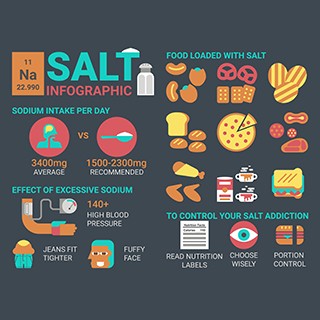Adulthood
Adulthood
Adulthood begins with puberty. However, as a society, we consider an adult to be a person who is out of their teens. Generally, a young adult is considered to be a person between the ages of 20 and 40. A person in middle adulthood is considered to be between 40 and 69 years of age.
As we move from adolescence to adulthood we are faced with many different challenges. We have different nutritional and exercise needs in this stage of our life. There are many changes that occur between the ages of 30 and 70 that can affect our health. We cannot control some of these changes because they are a part of the normal aging process. Changes include: our metabolism slows down (we need less calories), the way our heart functions is not as efficient, we lose muscle mass, our bones become weaker, the way we use nutrients becomes less efficient, and we have a less keen sense of taste and smell. However, taking care of ourselves during these years can help us ensure a better and healthier life when we are older adults.
As adults, there are many things we can do to remain healthy. Small changes in our diets and activity levels can help in this process.

REDUCE FAT IN THE DIET: Reducing the amount of total and saturated fat in the diet may help reduce the chance of developing heart disease, high cholesterol, cancer, diabetes and stroke.
Ways to reduce fat in the diet:
- Remove skin from chicken
- Drain fat from meats
- Chose low fat meats
- Use fat free or low fat dairy products
- Bake/grill foods instead of frying them
- Limit high fat foods like bacon and sausage

LIMIT ALCOHOL: Alcohol provides 7 calories for every gram consumed. It provides extra calories that may contribute to weight gain with little nutritional benefits.

CONTROL CALORIES: Watching the number of calories eaten in a day can be very beneficial. To avoid weight gain we need to balance how many calories we eat with how many calories we use during that day. After age 19, the recommended calorie intake decreases by 10 calories per day for males, and 7 calories per day for females. Fun fact : 3,500 calories is equal to one pound; if you are taking in an extra 3,500 calories per week, you will gain one pound per week.
REDUCE SODIUM: Lowering the amount of sodium in the diet can reduce the risk of heart disease, high blood pressure and stroke.
- The recommendation for sodium in the diet is 2,300 milligrams a day (1 teaspoon of salt).
- For those 51 and older, and people with hypertension, diabetes, kidney disease and African Americans it is 1,500 mg per day.
- Remember to look at food labels since a lot of sodium is hidden in some common processed foods: soups, lunch meats, sauces.

INCREASE STARCH AND FIBER: Increasing starch and fiber in the diet will decrease the chance of developing heart disease, stroke and diabetes.

- The Dietary Guidelines recommend that 45 to 65 percent of total daily calories come from carbohydrates.
- Less than 10 percent should come from sugar.
- Fiber should be about 14 grams for every 1,000 calories.
Fiber sources: Fruits, vegetables, lentils, beans, cereals, nuts and refined grains.
STAY ACTIVE: Staying active has many health benefits. A little bit of exercise goes a long way.
- Gives the body more energy
- Lowers risk of heart disease, obesity, diabetes, high blood pressure, some cancers.
- Helps with sleep problems
- Aids in making bones stronger
- Improves the immune system
- Reduces stress and anxiety
- Helps control weight
- Increases the chance of staying independent later on in life.



 TARRANT COUNTY, TX
TARRANT COUNTY, TX

 Chronic Disease Prevention
Chronic Disease Prevention